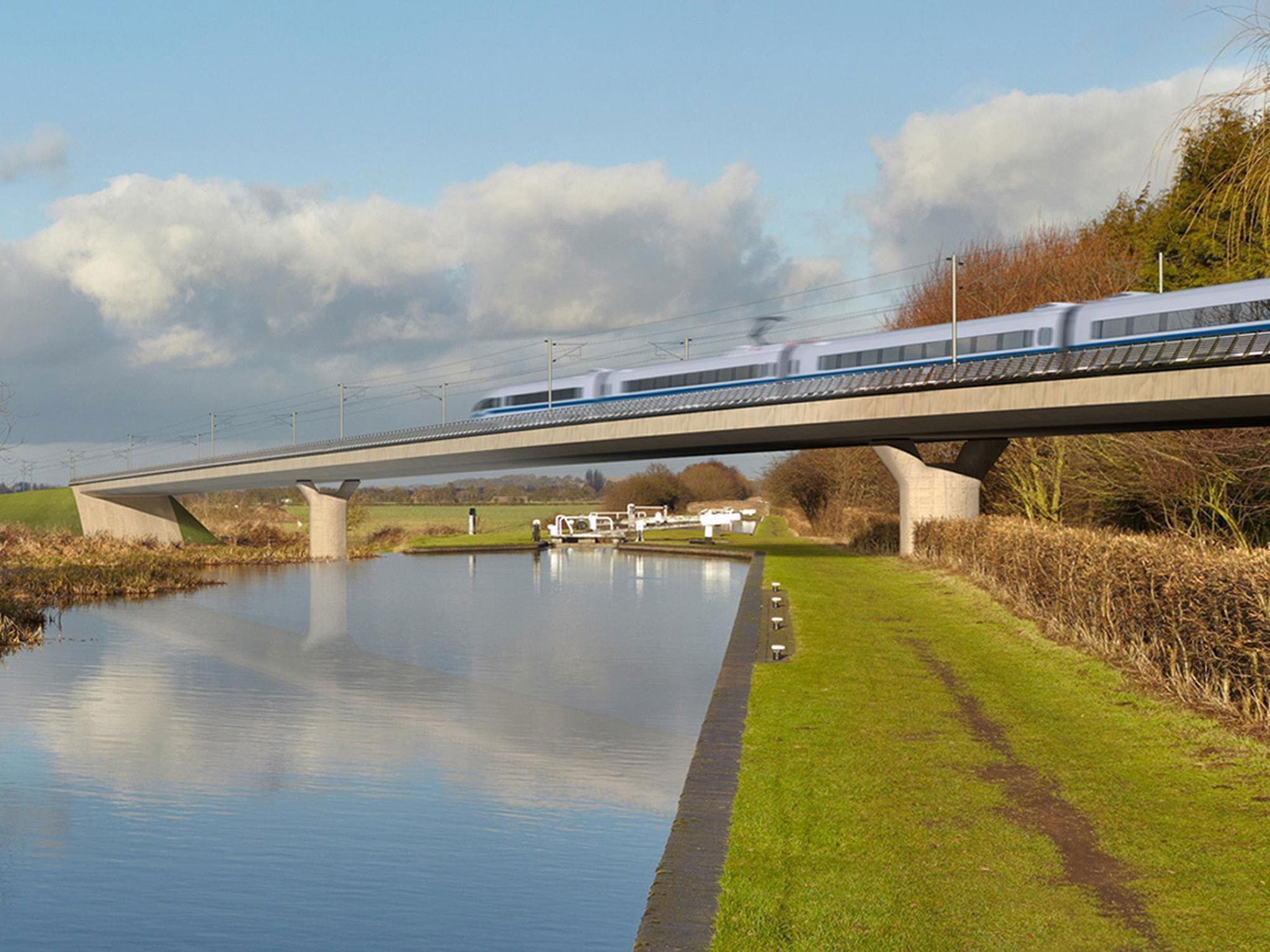HS2 will be expensive and destructive – but it is the only way to revitalise Britain's railways
Sir David Higgins says it is vital we learn from past infrastructure mistakes


Your support helps us to tell the story
From reproductive rights to climate change to Big Tech, The Independent is on the ground when the story is developing. Whether it's investigating the financials of Elon Musk's pro-Trump PAC or producing our latest documentary, 'The A Word', which shines a light on the American women fighting for reproductive rights, we know how important it is to parse out the facts from the messaging.
At such a critical moment in US history, we need reporters on the ground. Your donation allows us to keep sending journalists to speak to both sides of the story.
The Independent is trusted by Americans across the entire political spectrum. And unlike many other quality news outlets, we choose not to lock Americans out of our reporting and analysis with paywalls. We believe quality journalism should be available to everyone, paid for by those who can afford it.
Your support makes all the difference.All aboard for the future? The 18 pages of Sir David Higgins’ closely argued case for high-speed rail can be boiled down to just 18 words: if you are going to build the line Britain desperately needs, build it properly and build it soon.
This morning, millions of commuters will corroborate his assertion that “every day, people in this country live with the consequences of our past failure to invest sufficiently in infrastructure capacity”.
The chairman of High Speed 2 wants to transform the nation’s economic geography with an express link from London via Birmingham to the North. Sir David musters powerful arguments for swift progress, hinged on the belief that “our infrastructure has not stood the test of time: it is a series of imperfect compromises which have not provided a strategic answer to the needs of the country”. HS2 Plus, he says, is the solution.
The “Plus” is more than PR embellishment. Sir David urges bolder planning than originally envisaged. His key recommendation, that phase one should extend beyond the West Midlands and into Cheshire, echoes the old music-hall song “Oh! Mr Porter”: “I wanted to go to Birmingham, and they’ve taken me on to Crewe.” And while high property prices in London are part of the imbalance he believes HS2 can correct, an ambitious terminus in the capital could be paid for by shrewd extraction of the real-estate value of Euston – to create a “desti-station” that becomes a local economic hub as well as a national gateway.
Wisely, he cautions against ploughing £700m into a link between the new line and High Speed 1 – which currently ends at St Pancras, half a mile from where High Speed 2 would begin. It reveals much about our lack of joined-up planning that no provision was made for a possible spur from the Channel Tunnel Rail Link when the £6bn line to France was built.Even with the cost of phase one whittled down below £25bn, the project remains the most expensive advance rail ticket in history, and faces formidable foes.
First in the queue: the taxpayer. This long-suffering individual is profoundly sceptical of bloated public projects, whether NHS computer networks or Royal Navy aircraft carriers, which over-spend as predictably as they under-deliver. The typical taxpayer uses trains rarely or never, yet already contributes about half the cost of keeping the nation’s creaking network running.
Many of those who do go by train have the temerity to live in areas such as East Anglia, South Wales or Cornwall. None of those regions stands to benefit from HS2.
The business community is broadly in favour of HS2. The construction phase would provide a prodigious amount of work, and once completed the line will improve connectivity, expand capacity and perhaps even clear some traffic from the motorway network.
But many individual enterprises are appalled. Why should high-tech firms in Cardiff or Cambridge help pay for their rivals in Chester to gain a competitive edge?
And, of course, the line will cause a heck of a mess. Communities in the Chilterns fear they will find themselves somewhere on the spectrum between disruption and devastation, yet without a stop on the route between London and Birmingham. They will try everything from legal challenges to unseating MPs to block the line.
In the physical world, the force of inertia is a contradiction in terms; but in the political world, the forces of inertia have proved quite capable of hobbling big transport infrastructure projects.
As a recipe to revitalise the railways, HS2 is far from perfect, but it is the only grand project likely to succeed.
Join our commenting forum
Join thought-provoking conversations, follow other Independent readers and see their replies
Comments